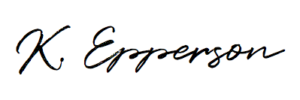
Trying to save money?
Yeah… it’s not for the faint of heart.
Ads. Sales. Special Offers. Social Media. We are constantly bombarded with messages and images designed to manipulate us. Our inboxes are full of, “YOU NEED THIS THING. IT’S ON SALE!” and our feeds are full of, “MY LIFE IS PICTURE PERFECT BECAUSE OF THIS THING!” It can be overwhelming.
So what can you do about it?
One strategy is to give yourself time before buying something. Wait a couple of weeks. See how you feel. If you really need that thing, it will be there when you return.
But if that’s not enough, you can also ask yourself these 3 simple questions to help make less impulsive, more informed decisions.
1. How much am I going to actually use this?
You know that giant box of craft supplies in the closet that you bought when you thought you might get into scrapbooking? It’s probably still there, and I’m guessing you haven’t made any scrapbooks.
Trust me, I’ve been there. We all like to think about possibilities, but we aren’t spending possible money to purchase things we don’t need. If you hardly cook, does it really make sense to buy that new kitchen appliance? Our purchases should enhance the life we already have; we shouldn’t change our lives to justify our purchases.
2. Why am I buying this?
To answer this question, we have to be brutally honest with ourselves. Are we buying this because we had a bad day and want a hit of endorphins? Are we buying this thing because we actually need it? Are we trying to buy happiness/health/status by purchasing this thing? What is at the root of our purchase?
One suggestion is to follow the purchase out to its conclusion. Buying that watch won’t turn you into an Instagram star. It will only make you poorer and sadder when you have a watch we don’t wear. Even if buying that watch did give you more followers on social media, that won’t make you happy, either. Finally, you realize that buying that watch won’t make you happier or more successful. Suddenly, the watch has lost its appeal and power. If you can accurately identify your motivations for wanting to buy something, it will help you avoid buyer’s remorse and needless debt.
3. What is the real cost?
Everything comes with a price tag, and the dollar amount is just the beginning. That house you’ve been eyeing? It sounds like a dream. A dream that also comes with maintenance, landscaping, possibly an HOA, property taxes, not to mention a mortgage. Can you afford all of those additional costs and stressors? We have to weigh the cost of keeping an item, not just purchasing an item. And be sure to include the cost of getting rid of it or selling it if/when you don’t want it anymore. When I want to sell that shirt I hardly wore, now I have to spend the time taking pictures, posting photos on a marketplace, messaging someone, meeting a buyer, or shipping it. Suddenly that $15 shirt seems like a lot more than $15. Remember, time=money, and we have to consider the time we must invest in something as part of its cost.
In my experience, I can count on one hand the number of times I’ve regretted not buying something. On the other hand, the number of times I’ve regretted buying something is much larger. By using these questions, you can better filter through the impulses and the manipulation that we all face when making purchases. Swap that buyer’s remorse for buyer’s prudence and save money in the process.
